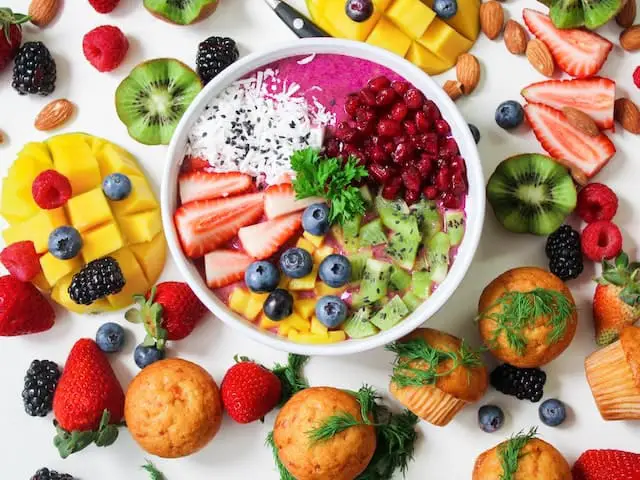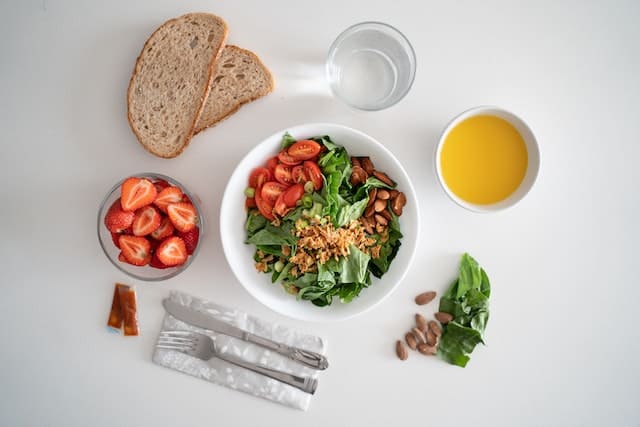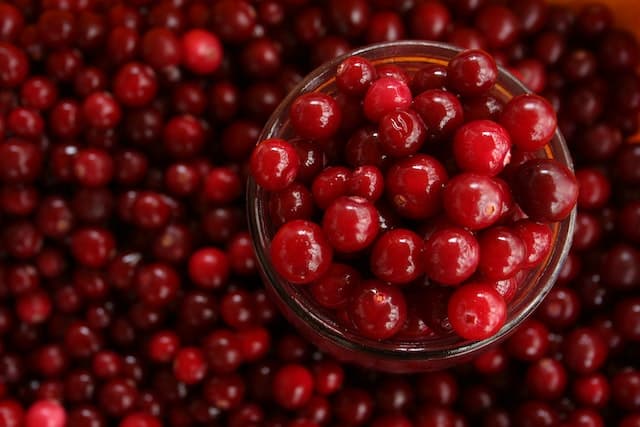Low fat diet foods to avoid – Are you looking to make healthier choices when it comes to your diet? If so, understanding which low-fat foods to avoid can be crucial. As a nutritionist, I am here to provide you with accurate and up-to-date information based on scientific research and evidence.
In this article, we will discuss some common low-fat diet foods that may not be as healthy as they seem.
Processed low-fat snacks are often marketed as a healthier alternative to their full-fat counterparts. However, many of these snacks are loaded with added sugars and unhealthy ingredients. These processed snacks can lead to spikes in blood sugar levels and provide little nutritional value. It’s important to read labels carefully and opt for wholesome snacks such as fresh fruits and vegetables instead.
Another food category to watch out for is low-fat salad dressings. While they may seem like a smart choice for those watching their calorie intake, many low-fat dressings compensate for the lack of fat by adding excessive amounts of sugar or artificial additives. Additionally, fat plays an essential role in helping our bodies absorb certain vitamins from salads. Instead of reaching for low-fat dressings, consider using olive oil or vinegar-based options for a healthier alternative.
By being aware of these potential pitfalls in the world of low-fat foods, you can make more informed decisions about your diet. Remember that balance is key, and it’s important to prioritize whole foods over processed options whenever possible.
So let’s dive deeper into specific low-fat diet foods that should be avoided on your journey towards a healthier lifestyle.
Processed Low-Fat Snacks

You shouldn’t be fooled by processed low-fat snacks; they may seem like a healthier choice, but they are often packed with hidden sugars and artificial additives that can do more harm than good.
While these snacks may be labeled as ‘low-fat,’ they often compensate for the lack of fat by adding extra sugar or unhealthy additives to improve taste and texture. These hidden sugars and additives can have negative effects on your health, such as increasing your risk of weight gain, diabetes, and heart disease.
When it comes to choosing snacks, it’s important to consider their nutritional impact. Processed low-fat snacks may be lower in fat content, but they are typically higher in carbohydrates and sugars. These excess carbohydrates can lead to blood sugar spikes and crashes, leaving you feeling hungry shortly after consuming them. Additionally, the added sugars in these snacks contribute empty calories without providing any significant nutritional value.
Instead of relying on processed low-fat snacks, consider opting for homemade alternatives. You have more control over the ingredients used when preparing your own snacks at home.
For example, you could make your own trail mix using a combination of nuts, seeds, and dried fruits. This provides a balance of healthy fats, protein, fiber, vitamins, and minerals without the added sugars or artificial additives found in processed options.
Now let’s move on to discussing another common item that people often think is healthy: low-fat salad dressings.
Low-Fat Salad Dressings

When it comes to low-fat salad dressings, there are a couple of key points to keep in mind.
First, many of these dressings compensate for the reduced fat content by adding high amounts of sugar or sodium, which can be detrimental to your health.
Second, while limiting unhealthy fats is important for overall health, it’s also crucial to include healthy fats in your diet for proper nutrient absorption and satiety.
As a nutritionist, it’s important to provide accurate and up-to-date information about these factors so that individuals can make informed decisions about their diet.
High sugar or sodium content
Avoiding high sugar or sodium content in low-fat diet foods can be a challenge, but it’s worth it to keep those taste buds happy and your health on track. Many low-fat salad dressings may seem like a healthy choice, but they often compensate for the lack of fat by adding excessive amounts of sugar or sodium.
High sugar beverages such as fruit-flavored dressings or sweetened vinaigrettes can quickly add up the calories and spike your blood sugar levels. Similarly, sodium-packed condiments like soy sauce or certain types of salad dressings can contribute to bloating and increased blood pressure. It is important to read labels carefully and opt for dressings that are lower in added sugars and sodium to maintain a well-balanced diet.
In order to provide you with a better understanding of the impact that high-sugar and high-sodium dressings can have on your health, let’s take a look at this table:
| Dressing Type | Sugar Content (per serving) | Sodium Content (per serving) |
|---|---|---|
| Fruit-Flavored | 10g | 120mg |
| Sweetened Vinaigrette | 8g | 180mg |
| Low-Sugar | 4g | 80mg |
As you can see, even seemingly healthier options still contain significant amounts of added sugars and sodium. By choosing low-sugar alternatives with reduced sodium levels, you can enjoy delicious salads without compromising your health goals. Now let’s move on to discussing the importance of limited healthy fats in your low-fat diet without any further delay.
Limited healthy fats
Embracing a balanced approach to nutrition means incorporating moderate amounts of nourishing fats can elevate the taste and satiety of your meals. Contrary to popular belief, not all fats are bad for you. In fact, healthy fats play a crucial role in our overall health and well-being.
Here are some benefits of incorporating healthy fats into a low-fat diet:
– Healthy fats provide essential nutrients: Fats are vital for absorbing fat-soluble vitamins like A, D, E, and K. These vitamins support various bodily functions such as immune function, bone health, and hormone production.
– Healthy fats promote heart health: Certain types of fats like monounsaturated and polyunsaturated fats have been shown to reduce the risk of heart disease when consumed in moderation. They help lower bad cholesterol levels (LDL) while increasing good cholesterol levels (HDL).
– Healthy fats enhance flavor and satisfaction: Fats add richness and flavor to your meals, making them more enjoyable. Including healthy fats in your diet can increase satiety and prevent overeating by keeping you feeling full for longer.
– Healthy fats support brain function: Our brains rely on fat for proper functioning. Omega-3 fatty acids found in foods like salmon, walnuts, and flaxseeds have been linked to improved cognitive function and reduced risk of age-related decline.
Tips for finding alternative sources of healthy fats in a limited fat diet include incorporating foods such as avocados, nuts/seeds (almonds, chia seeds), olive oil or other plant-based oils (like coconut oil), fatty fish (salmon or trout). By including these sources in your low-fat diet plan mindfully while keeping portion sizes reasonable, you can help you reap the benefits without going overboard on calories.
Transitioning into the subsequent section about ‘fat-free dairy products’, it’s worth mentioning that there are alternatives available that offer lower fat options without sacrificing taste or nutritional value.
Fat-Free Dairy Products

Indulging in fat-free dairy products can be a delicious way to satisfy cravings while still sticking to a low-fat diet. Fat-free yogurt alternatives and plant-based milk options are great choices for those looking to reduce their fat intake without sacrificing taste or nutrition. These dairy alternatives not only provide essential nutrients but also offer a range of flavors and textures that can enhance your meals and snacks.
Fat-free yogurt alternatives, such as Greek yogurt made with skim milk, are rich in protein and calcium while being low in fat. This makes them an excellent choice for individuals who want to maintain bone health and build muscle mass without consuming excess fats. Additionally, many fat-free yogurts contain live cultures or probiotics, which promote gut health and aid digestion.
Plant-based milk options like almond milk, soy milk, or oat milk are another fantastic alternative to traditional dairy products. These non-dairy milks are naturally lactose-free and lower in saturated fats compared to whole cow’s milk. Furthermore, they often come fortified with calcium and vitamin D, making them suitable substitutes for individuals with lactose intolerance or those following a vegan lifestyle.
Incorporating fat-free dairy products into your diet can help you meet your nutritional needs while adhering to a low-fat eating plan. Whether you choose fat-free yogurt alternatives or plant-based milks, these options provide taste, variety, and health benefits without compromising your dietary goals.
Remember to check the labels of these products for added sugars or artificial additives; opt for unsweetened varieties whenever possible. Enjoy the satisfaction of creamy goodness while maintaining a balanced approach towards your overall health!
Frequently Asked Questions
Are all processed low-fat snacks unhealthy?
While not all processed low-fat snacks are inherently unhealthy, it is important to choose options that are nutrient-dense and minimally processed. Incorporate low-fat cooking techniques like grilling, baking, or steaming for healthier snack options.
Can low-fat salad dressings still be high in added sugars?
Yes, low-fat salad dressings can still be high in added sugars. It’s important to check the nutrition facts label for the amount of sugar per serving. Excess added sugars can negatively impact your health.
Are there any potential drawbacks to consuming fat-free dairy products?
While fat-free dairy products can be a convenient option for those looking to reduce their fat intake, it’s important to consider potential health risks. These products may impact nutrient absorption, so moderation is key.
What are some alternatives to processed low-fat snacks for a healthier diet?
For a healthier diet, opt for healthy snack options such as fresh fruits, vegetables with hummus or yogurt dip, homemade low-fat snacks like air-popped popcorn or baked kale chips. These choices provide essential nutrients while avoiding processed ingredients.
Are there any low-fat salad dressings that are actually beneficial for weight loss?
Yes, there are low-fat salad dressing substitutes that can be beneficial for weight loss. These options can provide flavor without the excessive calories and fat of traditional dressings, supporting your overall health goals.
Conclusion
In conclusion, when it comes to following a low-fat diet, there are certain foods that you should avoid. Processed low-fat snacks may seem like a healthier option, but they often contain added sugars and unhealthy ingredients. It’s best to opt for whole, unprocessed snacks such as fruits, vegetables, and nuts.
Another food item to be cautious of is low-fat salad dressings. While they may offer a lower calorie option compared to regular dressings, they often compensate for the lack of fat by adding more sugar or artificial additives. Instead, try making your own dressing using olive oil and vinegar or lemon juice for a healthier alternative.
Lastly, fat-free dairy products should be consumed with caution. While they may have less fat content, they often have higher levels of added sugars or artificial sweeteners. Additionally, some studies suggest that full-fat dairy products can actually have beneficial effects on health when consumed in moderation.
It’s important to remember that not all fats are bad for you. In fact, healthy fats such as those found in avocados, nuts, and olive oil can provide numerous health benefits including improved heart health and increased satiety. When planning your low-fat diet, it’s crucial to focus on consuming whole foods that are minimally processed and avoiding foods that are high in added sugars and unhealthy additives.
As a nutritionist or registered dietitian would advise you based on scientific research and evidence-based guidelines: prioritize balanced meals consisting of lean proteins, whole grains, fruits, and vegetables while incorporating healthy fats in moderation for optimal health outcomes. Remember to consult with a healthcare professional before making any significant changes to your diet regimen.

Stephanie Ansel is a well-known writer and journalist known for her unique and captivating writing style. She has written many articles and books on important topics such as the lifestyle, environment, hobbies, and technology and has been published in some of the biggest newspapers and magazines. Stephanie is also a friendly and approachable person who loves to talk to people and learn about their stories. Her writing is easy to read and understand, filled with lots of details and information, and is perfect for both kids and adults who want to learn about important topics in an interesting way.






